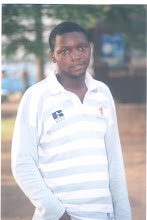Unfortunately there's no one answer to this. It really is tremendously varied. Plenty of photographers I know demand the latest, fastest DSLR and as far as they are concerned, nothing else will do. But that is not how we were working a few years ago. High speed autofocus is relatively new and some photographers are now rebelling against that and paying a small fortune for lenses designed with manual focus in mind, as they once always were.
It wasn't that long ago that I was being told by many professional photographers that digital will never compete with film and was therefore a waste of time. At that time I had a Mamiya 120 roll film camera and an early Olympus digital in the camera bag. I ignored the advice of those photographers, who told me that there was no future in digital and showed pictures to my clients and my potential clients. Back then there was a bit of an argument going on and so many photographers were writing articles about digital quality being nowhere near as good as film. When I was asked whether I would shoot their wedding digitally or on film, I answered that that was their choice and showed them the results of my work from both cameras side by side. 100% chose digital 4 megapixel over medium format film. I never looked back. Curiously I have recently found myself defending friends who have chosen to stay with film. What they do works for them and whilst I wouldn't do it myself I can see why it is good for certain business models and certain photographers. Digital is not necessarily easier or cheaper than film.
My personal opinion regarding cameras is that most mid-range and top end digital SLRs are more than capable of providing you with the basic tool to photograph a wedding. I don't want to talk right now about what you need to know to photograph a wedding successfully because that subject is not one essay. The short version is a good few seasons of wedding photography. Then there is processing, digital imaging, album design, presentation, wedding service promotion. The book will have to come later.
So let's do this simply and pretend that greys are actually black and white and I am going to talk a little bit more about my personal preferences now and how I would build a camera bag from scratch, if I just had money and my knowledge but not the great stack of equipment I presently carry. I guess for this scenario to work, we have to envisage some kind of event where my camera bags and kit is burned away and I have an insurance claim to start again. The thought of that fills me with dread but if it did and I were, here's what I would probably do:
First get a hammerhead flashgun and batteries - Metz or Quantum Then a few camera bags - a big one for lugging a full day's kit around together, such as a Lowepro Commercial AW or similar. Also a smart rucksack, such as a Bilingham or Lowepro and then also some well padded satchels, such as the Billingham Hadley or one of the Tamrac shoulder types. Tripods and monopods from Manfrotto. One really big tripod, one standard and a monopod.
All of the above is fairly straight-forward but now it stars to get complicated. by David R Day
Wednesday, June 3, 2009
Subscribe to:
Post Comments (Atom)

No comments:
Post a Comment